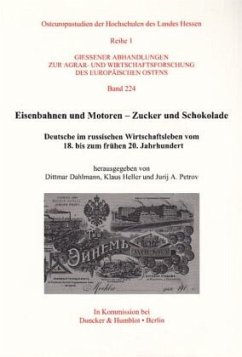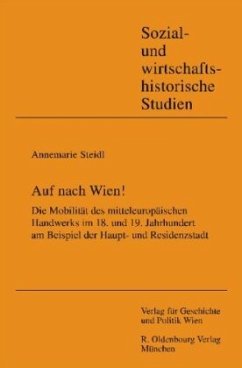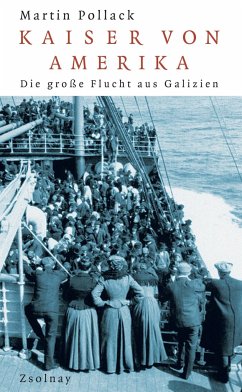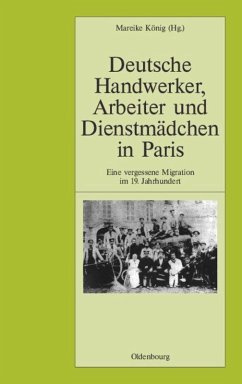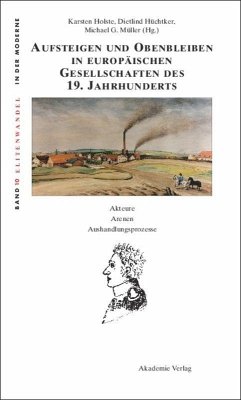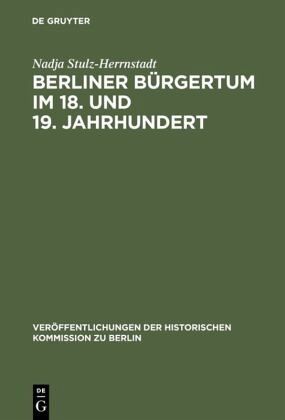
Berliner Bürgertum im 18. und 19. Jahrhundert
Unternehmerkarrieren und Migration. Familien und Verkehrskreise in der Hauptstadt Brandenburg-Preußens. Die Ältesten der Korporation der Kaufmannschaft zu Berlin

PAYBACK Punkte
0 °P sammeln!
This social history examines the Berlin bourgeoisie using the example of a representative group of entrepreneurs. Using the modern method of nominal record linkage, the mobility and social networks of bourgeois families and groups of families are traced well back into the 18th century. The study is based principally on a complex evaluation of church records. The study takes the social context of the capital city and residence of Berlin to contribute to the ongoing lively debate on the problems of continuity and discontinuity in the development of the modern bourgeoisie in Brandenburg and Prussia. This study gives tangible form to the Berlin middle classes, with their outstanding entrepreneurs, civil servants and artisans working at court, important ecclesiastical figures, doctors, scholars and artists.
Diese Sozialgeschichte untersucht am Beispiel einer repräsentativen Unternehmergruppe das Berliner Bürgertum. Mit der modernen Methode der nominalen Record Linkage werden die Mobilität und das soziale Netzwerk von bürgerlichen Familien und Familiengruppen bis weit in das 18. Jahrhundert zurückverfolgt.
Die Arbeit basiert maßgeblich auf einer komplexen Auswertung von Kirchenbüchern. Eingebettet in den sozialen Kontext der Haupt- und Residenzstadt Berlin wird hier für die brandenburgisch-preußische Geschichte die lebhaft debattierte Problematik von Kontinuität und Diskontinuität im Prozeß der Herausbildung des modernen Bürgertums behandelt.
Das Berliner Bürgertum mit seinen herausragenden Unternehmern, den Beamten und hofnahen Handwerkern, bedeutenden Kirchenmännern, Ärzten, Gelehrten und Künstlern nimmt in dieser Arbeit konkrete Gestalt an.
Die Arbeit basiert maßgeblich auf einer komplexen Auswertung von Kirchenbüchern. Eingebettet in den sozialen Kontext der Haupt- und Residenzstadt Berlin wird hier für die brandenburgisch-preußische Geschichte die lebhaft debattierte Problematik von Kontinuität und Diskontinuität im Prozeß der Herausbildung des modernen Bürgertums behandelt.
Das Berliner Bürgertum mit seinen herausragenden Unternehmern, den Beamten und hofnahen Handwerkern, bedeutenden Kirchenmännern, Ärzten, Gelehrten und Künstlern nimmt in dieser Arbeit konkrete Gestalt an.




